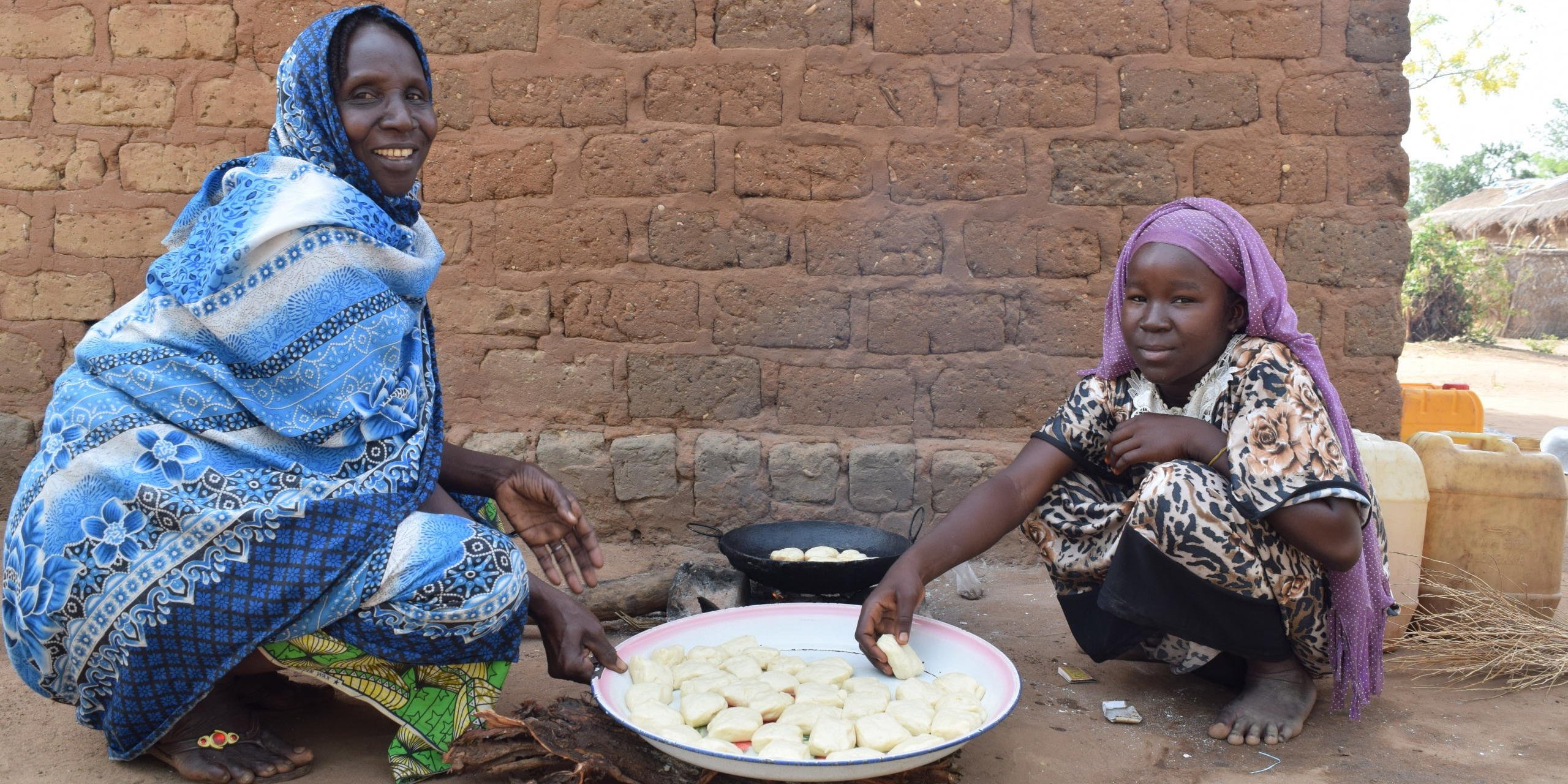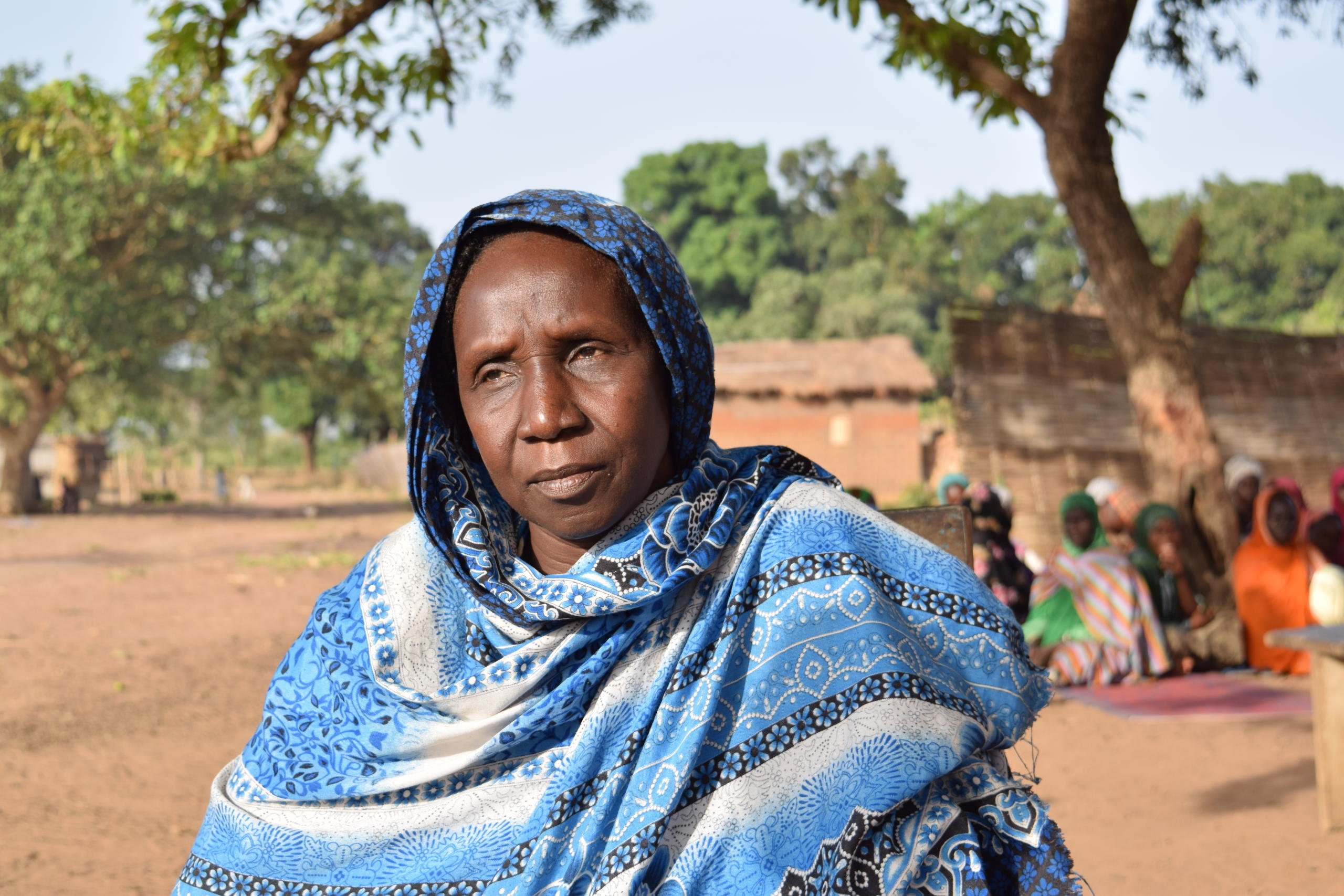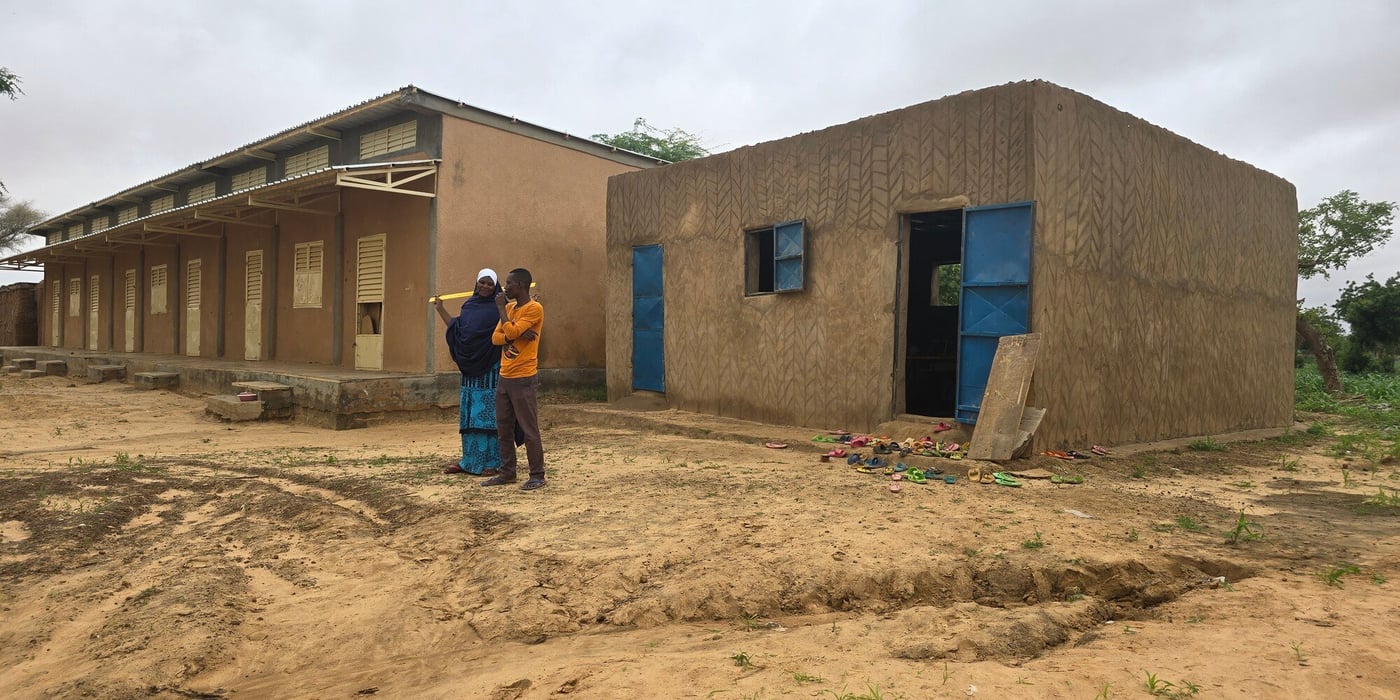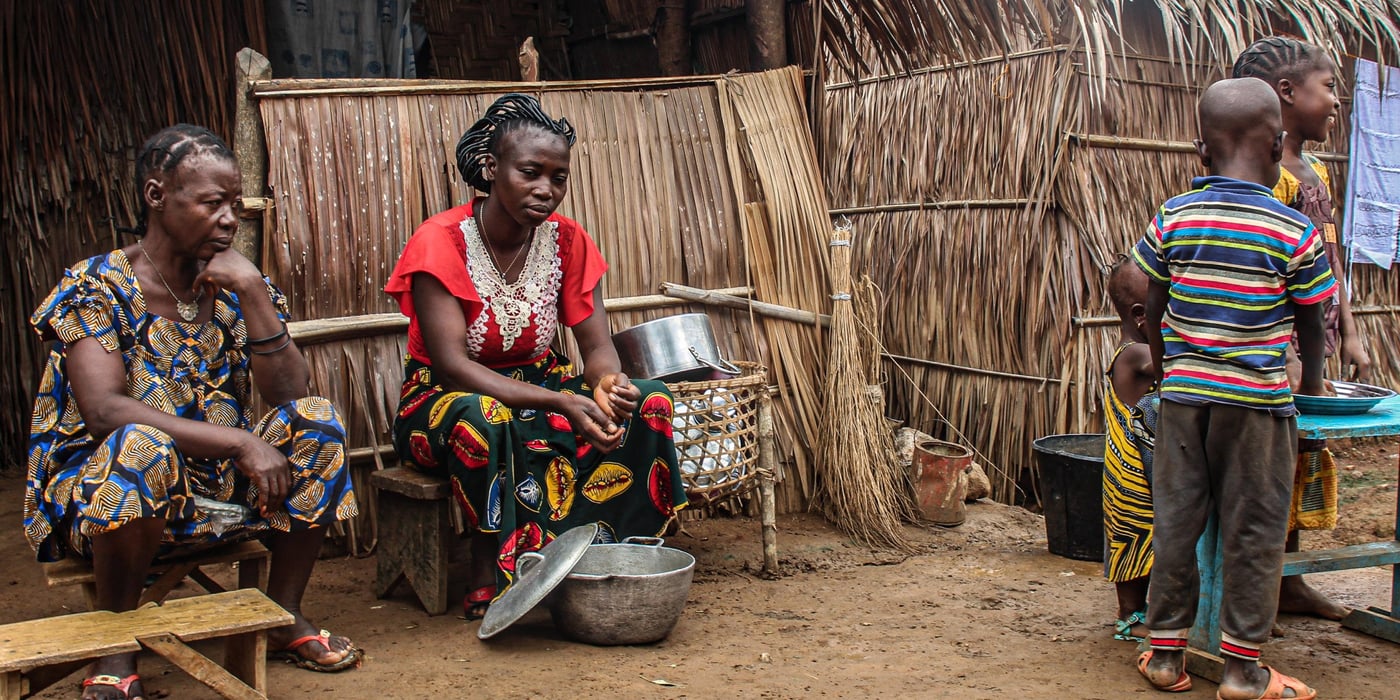
Many men and women, often from the Muslim community, have arrived both alone and with their families, in N’délé, with virtually nothing, after having lost all they once owned.
Kadidja is one of them. She used to live in the Miskine district of Bangui and owned a business. In 2014, when clashes between the anti-Balaka and the ex-Seleka broke out in the capital, Kadidja had no other choice but to flee. With that action, the life she had built was gone.
“I work in a small business and I earn enough to cover my needs and those of my children”Kadidja
Starting a new life in N’dele was not easy, due to the financial hardships usually experienced by displaced people. During their first days in N’dele, Kadidja and her children lived with a host family until they moved into one of the 68 homes our teams have built there. With her new-found home, Kadidja wanted to resume her professional life.Today, Kadidja is part of an association of 12 women who sell their products at the market. At the end of each month, the women share the money they have earned, so that each member can support their household.
"With this associative activity, I can take care of my children," said Kadidja.
With the help of guidance from our organisation, internally displaced communities in N’délé organise themselves in association and collectively use the tools and equipment that we provide them. The profits generated by the various professional activities are then redistributed among the members of the association.
"It's better to be organised in associations, we produce more and better," explained Kadidja.
With her new salary, Kadidja is able to provide food, access health care and pay school fees for her children. Kadidja has also been able to invest part of her salary to buy goats and set up a small donut business. This will allow her to generate new and regular income streams in the future.
"I work in a small business, and I earn enough to cover my needs and those of my children" said Kadidja who decided to stay in Ndélé. "I do not have the courage to return to Bangui. Here I have a new house built by the NRC and I am part of an association that has helped me a lot.”

Building a new life with agriculture
Other internally displaced people, who focus on agricultural activities, have also organised themselves into an association.
"I chose agriculture because I understand its importance," said Abdel Akim, who fled his hometown of Bossangoa. "The agricultural products I received from NRC allowed me to grow cassava, sorghum and peanuts."
“I was able to sell part of it and keep the rest to feed my family,”Akim
Thanks to the trainings provided by the NRC food security team, Akim learned methods to increase his yields. "Before we planted our seeds, we were taught to sow in rows and carefully record planting dates to improve our estimation of the harvest period. This was an important technique taught by NRC, and my production has drastically increased since then," he explained.
Akim was able to harvest groundnuts and cassava, but unfortunately his sorghum was destroyed by the livestock of transhumant herders in January. He plans to cultivate a new field this year. "With what I harvested last year, I was able to sell part of it and keep the rest to feed my family," he said.
Income-generating activities in Ndele were carried out with the financial support of the Swiss Development and Cooperation Department




